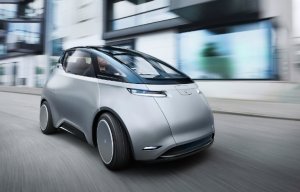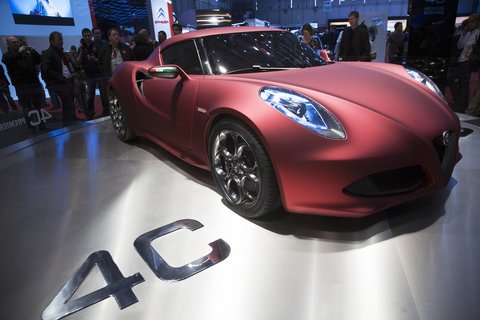
Unique chassis structure for new EV project
Lightweighting is the automotive industry’s best bet to achieve the 2025 Corporate Average Fuel Economy (CAFE) standard, said Chuck Evans, Corporate Vice President at Henkel Corporation’s automotive group, at the WWJ Newsradio 950 Auto Summit held yesterday in Southfield, MI. Henkel estimates its technologies can reduce mass of every vehicle by more than 95 kilograms ” the equivalent of planting 19 trees. “There are plenty of options on the table to get us to 54.5 miles per gallon by 2025,” Evans said. “Advanced powertrains, vehicle downsizing, lightweighting and other innovations are all being pursued. If we focus on vehicle lightweighting alone, according to Massachusetts Institute of Technology, the average new vehicle will weigh 28% less in 2016 than it does today. Just imagine what we can do by 2025.”

18th October 2013
Innovation in Textiles
|
Madison Heights, MI
Lightweighting is the automotive industry’s best bet to achieve the 2025 Corporate Average Fuel Economy (CAFE) standard, said Chuck Evans, Corporate Vice President at Henkel Corporation’s automotive group, at the WWJ Newsradio 950 Auto Summit held yesterday in Southfield, MI.
Henkel estimates its technologies can reduce mass of every vehicle by more than 95 kilograms — the equivalent of planting 19 trees.
“There are plenty of options on the table to get us to 54.5 miles per gallon by 2025,” Evans said. “Advanced powertrains, vehicle downsizing, lightweighting and other innovations are all being pursued. If we focus on vehicle lightweighting alone, according to Massachusetts Institute of Technology, the average new vehicle will weigh 28% less in 2016 than it does today. Just imagine what we can do by 2025.”
Apart from reducing weight and improving fuel economy, vehicle lightweighting is also about contributing to a better environment, the company reports.
According to Alcoa, the world's third largest producer of aluminum, replacing two pounds of steel with one pound of aluminum saves 20 pounds of carbon dioxide emissions over the life of the vehicle.
Fewer materials going into the vehicle means fewer industrial by-products and a reduction of materials going into landfills. “By incorporating the technologies that Henkel makes, we estimate that we can reduce the mass of every vehicle by more than 95 kilograms (approximately 209 pounds), which is the environmental equivalent of planting about 19 trees,” Evans said.
Using lightweight materials also poses some challenges. They cannot be introduced by using traditional joining and surface treatment techniques, therefore, the use of new methods, like adhesives, plays a significant role, the company reports.
Evans said the solution is found in chemistry. Cured adhesives are said to provide a protective barrier between metals that prevents corrosion, which is key given the highly corrosive nature of material like aluminum.
The company has also developed various technologies, from pretreatment processes to adhesives, as a response to the issue of lightweight material mass production, which is said to have often been impractical or cost prohibitive.
Henkel's LOCTITE MAX 2 solution is a polyurethane-based resin system that is said to cure faster than traditional epoxy resins.
Due to its low viscosity, LOCTITE MAX 2 is designed to more easily penetrate the fibre material speeding up cycle times so lightweight materials like carbon fibre composites can be introduced on high-volume automotive production.

Business intelligence for the fibre, textiles and apparel industries: technologies, innovations, markets, investments, trade policy, sourcing, strategy...
Find out more